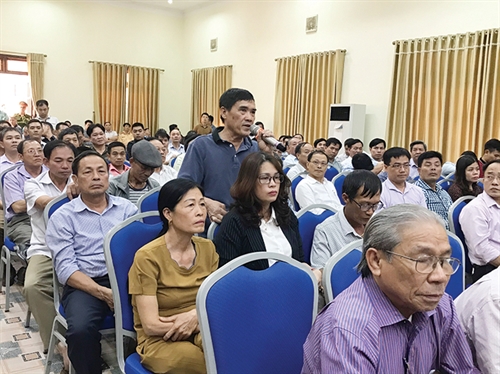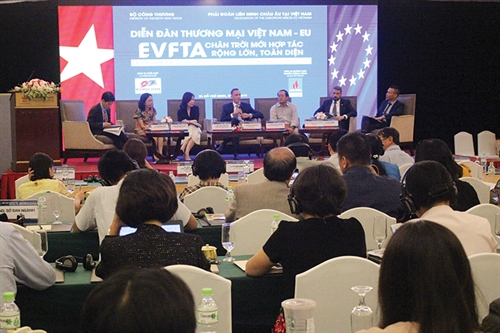Pham Duy Khuong, LL.M
Managing Director of ASL LAW
In the era of Industry 4.0, the physical border gradually becomes invisible when all services are provided and people’s demands are satisfied in the cyberspace where there are no borderline that may prevent any organizations or individuals with adequate capacity, passion and creativity from providing their own services worldwide.
The world has witnessed many companies and groups which are based in a country but have services used by millions or even billions of people across the world. Some leading ones may be cited like Google, Facebook, Twitter, Netflix, and Spotify, etc.
The common feature of these companies is to provide entertainment services via the Internet. With products that meet demands and tastes of consumers, these companies may extend their markets across the world only by enabling customers to access their platforms via applications and websites on the private devices, such as smartphones, tablets, and computers. Services and contents that are provided are very diversified to meet demands of users from seeing films, listening to music, seeing music clips to sharing information and images, and staying connected with friends.
Formally, with the development of information technology, the game becomes more balanced for all the parties, as long as each party has an equal opportunity in such game if satisfying the requirements on technology, human resources and financial resources, etc.
However, in fact, not all parties have the opportunity to equally compete with each other due to many factors. Legal barriers, in particular, licenses - the typical sign of the existence of physical boundaries, in many cases become an obstacle to the development of services in the era of Industry 4.0 and in Vietnam it is more evident than ever.
There used to be many opinions to assume whether or not Facebook, Twitter, Netflix, and Spotify may become billion-dollar businesses, if they are established and operate in Vietnam first. Definitively, the answer is still “No”, because in reality, there is no billion-dollar company in the field of providing services in the cyberspace that starts up successfully in Vietnam. However, it does not mean that we do not have brilliant candidates to become unicorns in the future.
 |
| Facebook has become popular among Vietnamese__Photo: Internet |
If a business desires to successfully develop, the first requirement is that it has products meeting demands and tastes of consumers. If consumers feel adequately confident in the products and the quality of the products meets their demands, they will use the products.
Returning to the above-mentioned issue, assuming that there are businesses with products similar to products of Facebook and Netflix operating in Vietnam, first of all, these businesses must obtain a license in accordance with law, e.g., a license for establishing social networks for products of Facebook, or a license for providing pay radio and television services for products of Netflix, or a license for providing information content services via mobile telecommunications networks for services like Spotify.
Apart from obtaining a license, these companies must satisfy a variety of other conditions, such as customer identification, and authentication of information provided by customers, etc. Not to mention the ability to meet these conditions, the companies must put themselves in the customer’s shoes to see whether a customer can feel comfortable to use a new product without reputation in the market if he is required to provide a range of sensitive personal information, in the context that the market of trade of consumers’ personal information is evaluated to be very buoyant while there are almost no sanctions imposed on these behaviors.
In fact, it is very simple to register accounts, like Facebook, Youtube or Spotify accounts. Customers are only required to have an email address, a username and an established passcode. If customers would like to increase the security of their accounts, they can additionally provide their phone numbers for a two-step authentication to protect their accounts from being hijacked or unauthorizedly accessed.
When the customers being the product users feel satisfied with the products, they are willing to provide their own personal information like in the case of Facebook. After customers use Facebook services for a period of time, Facebook requires users to authenticate their identity by snapping their identity papers and the users are completely satisfied with this.
However, it is also necessary to talk about the ability of satisfaction of conditions, such as the requirement “user identity authentication” as mentioned above. This requirement is regulated in some licenses that have existed for a long time, but the method of authenticating user identity is prescribed unclearly. Until recently, the Government has started drafting a number of guiding documents on the methods and measures of authenticating accepted users so that businesses may apply them in the process of providing their own services. This means that in a long time, businesses are still struggling with how to meet the prescribed conditions. More specifically, they are not able to comply with this requirement absolutely.
And yet, with the licenses obtained, businesses will be managed by the managing agencies that have granted such licenses. They will also be subject to periodical inspection according to an established plan under the Inspection Law or subject to unscheduled inspection if showing signs of violation. However, the problem is that if a business is licensed to operate in multiple fields and comes under the management by different agencies, it might have to receive many inspection teams. Hence, reality in the past showed that many businesses, instead of focusing resources on business development, had to form a dedicated division to meet the requirements of these inspections. The above situation decreased after the Prime Minister instructed not to carry out repeated inspections for a business.
In the perspective of state management agencies, the license-based management is a method of management which seems to be necessary in many fields. However, for the services provided in the cyberspace, licenses have imperceptibly become an obstacle to domestic businesses and “created advantages for” or “protected” cross-border service providers like Facebook, Youtube, and Netflix.
It is seen that one party (domestic businesses) is bound by many conditions and requirements while the other party (cross-border service providers) is not bound by any conditions and requirements, even the tax obligations with regard to the incomes generated in Vietnam. The requirement for businesses providing cross-border services to comply with Vietnam’s law is only “optional” and these businesses only fulfill the requirements of Vietnam’s competent authorities if such requirements are compatible with their own “policies” and “standards”. Evidently, in this relationship, cross-border service businesses have absolute advantages compared to domestic ones.
To solve this irrationality, Vietnam has adopted the Law on Cyber Security which requires foreign companies providing services via telecommunications networks or the Internet or providing value-added services in the cyberspace in Vietnam to open a branch or representative office in Vietnam. However, this regulation remains unenforced in Vietnam. After more than one and a half years of entry into force of the Law on Cyber Security, cross-border service businesses have not yet established their branches or representative offices in Vietnam. Meanwhile, state agencies of Vietnam are still confused in imposing sanctions that are deterrent enough for these violations.
Vietnam has also enacted the Law on Tax Administration which will come into force on July 1 of this year. This Law obliges commercial banks to deduct and pay taxes on behalf of overseas entities conducting e-commerce business activities generating incomes from Vietnam.
Pending the enforcement of the Law on Cyber Security and the Law on Tax Administration and relevant documents in order to create a “relatively equal” competition environment, domestic businesses still have to accept the status of this “reversed protection”.-









